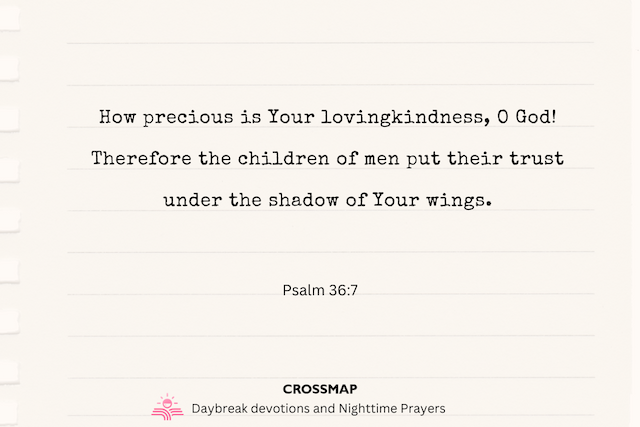The Privileged Life: A Garden Worth Tending
“Every branch in Me that does not bear fruit He takes away; and every branch that bears fruit He prunes, that it may bear more fruit.” (John 15:2)
My herb/flower bed has bed head.
It looks pretty ragged, much like the end of season. There’s no beautiful organization or delineation between plantings…just lots of frizzy, wild-looking parsley mixed with seedlings, chard, and a few tomato plants.
That’s because I’m a random gardener. I throw seeds and sprouts into the dirt with some water and composted fertilizer. My plantings are largely left on their own. Some years are crazy abundant, as with last year’s butternut squash alien invasion (see the blog about that here). Other times, I’ll get about four tomatoes out of six plants.
But, hey—my goal is to have fun and be surprised with whatever happens. It would be a different story if I were a farmer and our food supply depended on my horticulture skills…we’d starve. Praise God for grocery stores where I can buy produce someone else grew!
My method doesn’t work well, though, when it comes to my spiritual walk. It’s not a good idea to be a lackadaisical gardener in nurturing faith.

While God is the Master Gardener who has planted us in His kingdom, each of us is responsible for tending our own hearts. We are called to bear fruit. Lots of it.
Some of Jesus’ most prominent teachings revolved around agriculture and vineyards. He frequently likened His kingdom to soil, seeds, fruits, harvests, and so forth. His parables hit home because His listeners lived in an agrarian society—their very survival depended on careful attention to planting and harvesting. They could see the parallels between how God worked in their lives and how they had responsibilities as well. Their dirt-stained hands bore witness of their hard-scrabble toil to keep their literal gardens in shape.
Today, for many of us city dwellers, those parallels are less easily comprehended. Our vegetables come in shrink-wrapped packages, abundantly offered at supermarkets. We just grab and go. If we do any gardening, we wear gloves when digging around in flowerpots and backyard patches. Our hands don’t get quite as dirty. Or, like me, we’re sporadic in planting properly and keeping out weeds.
So, what does it mean to tend our heart gardens? To take care of the vineyards God has given us?
Our first responsibility is to be plugged into Jesus. He very clearly stated His role as the source of our nutrients and survival. “I am the vine, you are the branches. He who abides in Me, and I in him, bears much fruit; for without Me you can do nothing.” (John 15:5)

This verse hits home with its huge contrasts—either we bear a whole lot of fruit or none at all. We have to cling to Christ. Our hearts have to be sold out to Him, totally dependent on Him, in order to produce anything in His kingdom work. Without Jesus, we can do nothing…we produce nothing.
When I pulled up the wildly productive butternut squash vines at the end of last year, I found something remarkable. The vine roots had crept in only one direction—going directly underneath the compost heap, a mixed soil layered with nitrogen-rich organic fertilizer. Somehow those plant roots figured out where the good stuff was and made their way to it.
Isn’t that amazing? How unintelligent plant life is directed by God to seek and find His best? Going straight to the source of abundant life? We should do the same. To stay plugged into Jesus, we need to constantly seek Him in prayer, listen for His Holy Spirit to speak, and wait for His timing.
Secondly, we need to be obedient to His calling and commandments. This is where our fingers get filthy and our hearts get tired and achy. When we carefully study God’s word (not just skim over it)…when we persevere in prayer (not just say we’re going to pray for someone and then forget)…when we spend more time in service to His kingdom (and not avoid our churches’ pleas for volunteers)—we’re planting deliberately and weeding out ugliness/sin. Our hearts start to look more like the formal gardens of an English manor house and less like a an abandoned lot full of rusty salvage metal.

Finally, we need to look to the harvest. After we have groomed things the best we can between the furrows, we can only watch and wait. God provides the water, sunshine, and soil to make things happen. He prunes us, too, so that we will be likely to produce a greater outcome. But we must be patient to submit to His provision and His trimming.
It’s possible that we may never see the fruit He will create. Still, we can trust Him to use our every little effort to His glory. He can turn our seedlings into mighty trees.
What can you do to tend your heart garden? If you’re sitting down to a meal of fruits and vegetables today, thank God for providing them and reminding you that He has created you to be fruitful. Ask Him to show you clearly what He wants you to do, to bring others into His kingdom or nurture those who need encouragement. Cut out any weeds that choke you from following through on His work.
It’s a huge privilege to join God in His gardening plan. Cultivate the soil and seeds He has given you, feed your heart with His love, and reap the joy of His harvest. Let’s be careful gardeners this year!
Gracious God, Creator of life and Lord of the harvest, I ask You today to bless my work for You. Help me to grow in Your love, find safety in Your boundaries, and produce fruit for Your kingdom. Let me find my roots in You, and help me submit to Your pruning, knowing that everything in my life is for Your glory. You are the vine; make me a faithful branch. In Jesus’ name, Amen.


Nancy C. Williams is a Christian wife/mom with a writing career spanning more than 40 years in business and journalism. Williams is the author of the novel To Love a Falcon and the devotional book A Crocus in the Desert: Devotions, Stories, and Prayers for Women Experiencing Infertility. Her weekly blogs are featured on Crossmap.com. To follow Nancy’s posts and news, go to her home page at http://lightbournecreative.com and subscribe at the bottom.
© Copyright 2024 Nancy C. Williams, Lightbourne Creative (text and photography) Unless otherwise noted, Scripture verses are taken from the New King James Version®, Copyright © 1982 by Thomas Nelson. Used by permission. All rights reserved.
#gardening #heartgarden #spiritualgrowth #Godskingdom #fruitful #plantlife #springgarden #pruning












